Recent Articles
Popular Makes
Body Types
10 BMW 2 Series Competitors to Consider
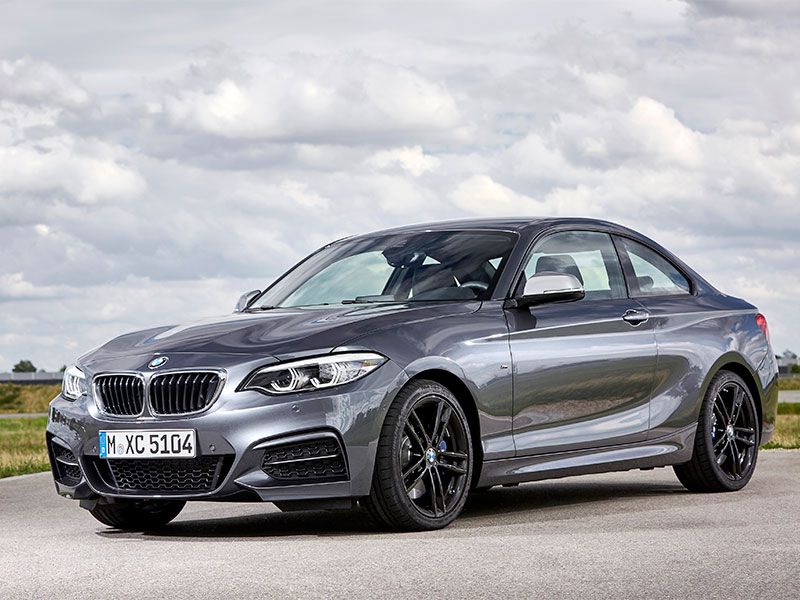
2019 BMW 240i ・ Photo by BMW
If you’re looking for a small but upscale sports coupe - or perhaps a convertible - the 2019 BMW 2 Series is an excellent choice. The 2 Series is the entry point to the BMW car lineup, so it has a relatively affordable starting price just north of $35,000. Yet it also provides the kind of BMW driving dynamics enthusiasts love, complete with standard rear-wheel drive and manual transmission. There’s even a dedicated high-performance model capable of running from 0 to 60 in only 4.2 seconds. Of course, you’ll see your share of high-end BMW features, too.
Not especially interested in buying from the Bavarians? There are some notable 2 Series competitors to consider, from other premium German cars to a couple of all-American entries.
2019 Audi A3 Cabriolet
Open-air 2 Series competitors to consider start with the 2019 Audi A3 Cabriolet. (Audi also offers a four-door A3 sedan and a five-door hatchback model, but they wouldn’t be direct rivals to the two-door 2 Series.) As for the A3 Cabriolet, it’s right about the same size as the 2 Series convertible, has the same-sized turbo engine, and costs $2,200 less.
Yet despite that lower starting price, the A3 - but not the 2 Series - comes standard with heated leather seats, Android Auto, and Apple CarPlay. On the other hand, the comparable 2 Series convertible makes more power from its motor, allowing it to sprint from 0 to 60 in 5.6 seconds. The front-wheel-drive Audi convertible takes almost 7 seconds to get up to speed.
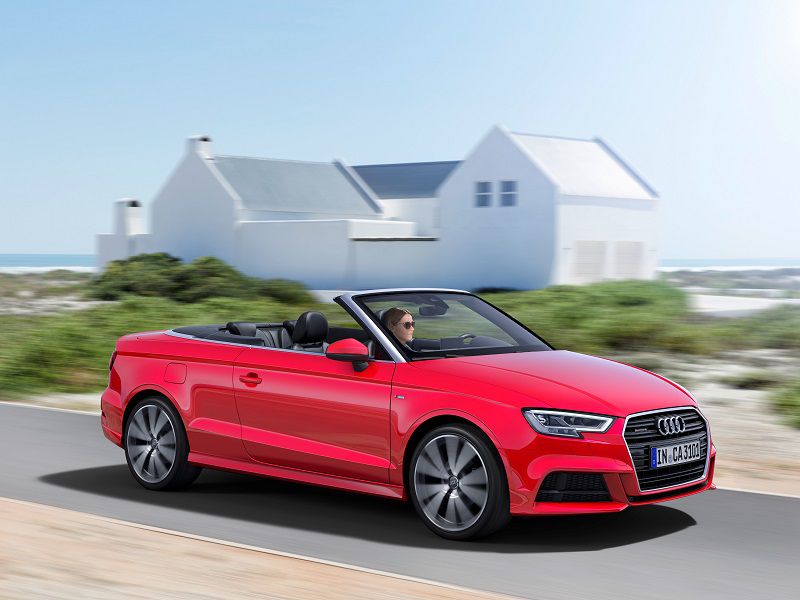
Photo by Audi
2019 Cadillac ATS
Premium subcompact coupes with rear-wheel drive are pretty rare, so we’ve got some compacts mixed in with our 2 Series competitors to consider. A case in point: the 2019 Cadillac ATS. The smallest Cadillac coupe for 2019, it does feature a rear-wheel-drive powertrain for pure performance. The ATS also supplies Android and Apple connectivity that’s not available from BMW.
The biggest difference, however, is the Cadillac’s size. The ATS is nearly 10 inches longer than the 2 Series and can seat five, while the 2 Series coupe is a four-seater. Yet the BMW has more rear-seat headroom and nearly the same rear-seat legroom. The ATS is more expensive, as well. You can get an all-wheel-drive 2 Series for the cost of a rear-wheel-drive ATS.
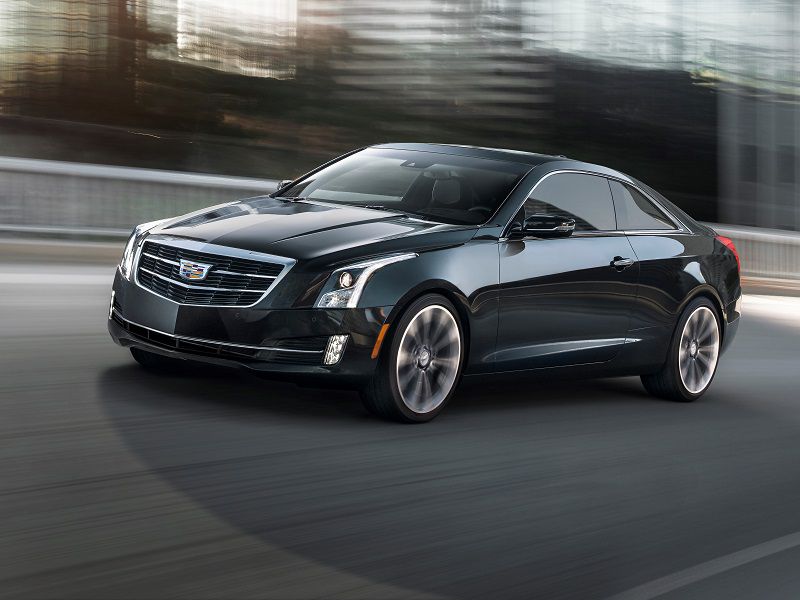
Photo by Cadillac
2019 Toyota 86
Mainstream 2 Series competitors to consider include the 2019 Toyota 86. Now, the 86 can’t match the 2 Series for a premium ownership experience, nor does it have the same premium performance. The naturally aspirated four-cylinder engine for the 86 tops out with 205 hp and 156 lb-ft of torque; even the entry-level 2 Series has 20 percent more horsepower and a staggering 65 percent more torque. And to be clear, Toyota doesn’t sell a convertible 86.
The obvious advantage with the 86 is its price tag. With an MSRP of $26,505, Toyota’s subcompact sports car is about $9,000 less expensive than the BMW. The 86 arguably is better looking, too, and rides on its own dedicated rear-wheel-drive platform with a standard manual transmission.
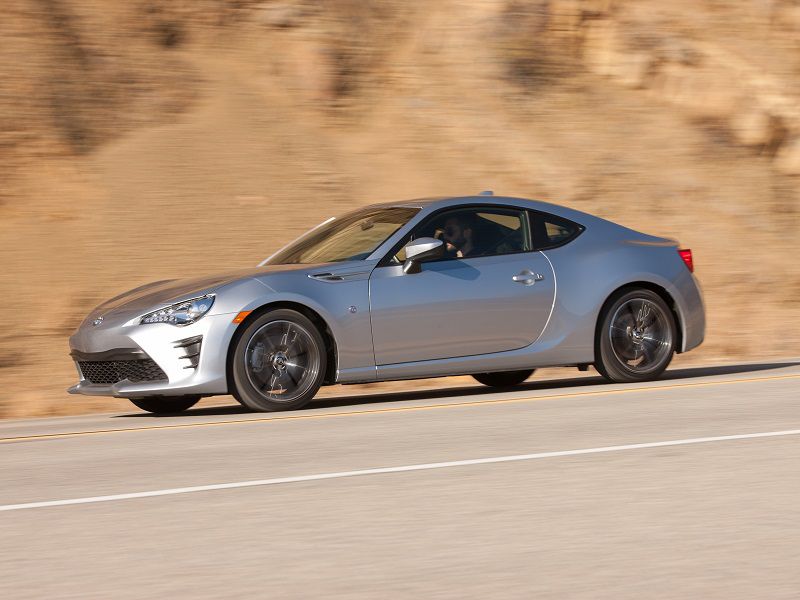
Photo by Toyota
2019 Chevrolet Camaro
We also think two of the American muscle cars should be among the 2 Series competitors to consider. For example, the 2019 Chevrolet Camaro matches the 2 Series with rear-wheel drive, a manual transmission, two different two-door body styles, and dedicated high-performance trims.
The difference is that the Camaro is approximately a foot longer than the BMW, although the 2 Series manages a few more inches of rear-seat legroom. True, this means the Camaro isn’t as nimble as the 2 Series, but the Chevy checks in with more standard power, a better power-to-weight ratio, and a much better power-to-pricing ratio. At the upper end of the spectrum, the Camaro SS brings 455 hp for $38K, while the M240i is priced above $45,000 with 335 hp, and brings to the table less technology.
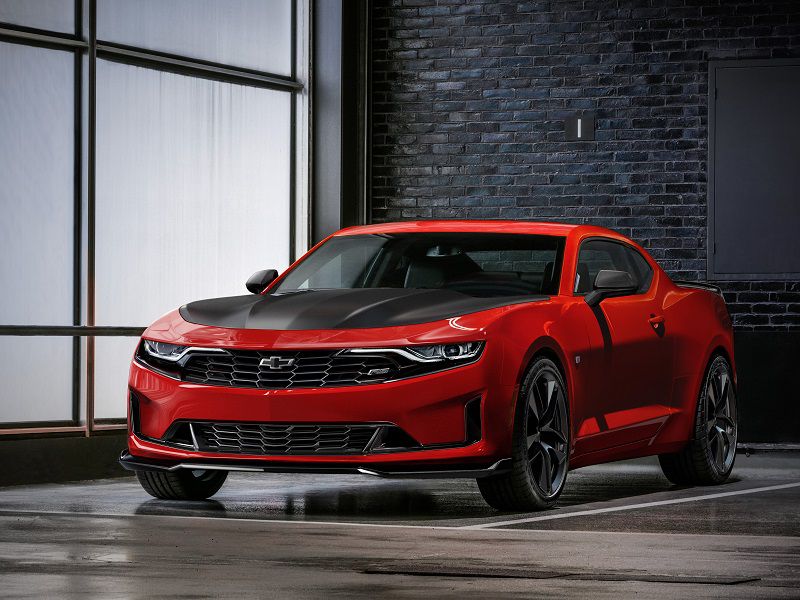
Photo by General Motors
2019 Nissan 370Z
The 2019 Nissan 370Z follows the same template as the U.S. muscle cars, which means that it also qualifies as one of our 2 Series competitors to consider. The MSRP for the Z car is a few thousand dollars less than for the BMW, but again, the Nissan is a small rear-wheel-drive sports coupe with an available drop-top model, a standard manual transmission, and a high-powered trim level that’s all about performance.
This last model has been thoroughly upgraded by Nissan’s NISMO motorsports division. As a result, it carries a 350-hp naturally aspirated V6 engine, a NISMO suspension, Dunlop hi-po tires, and racing-style seats developed with Recaro. On the topic of seats, just remember that the 370Z doesn’t have any in the back, which does impact practicality.
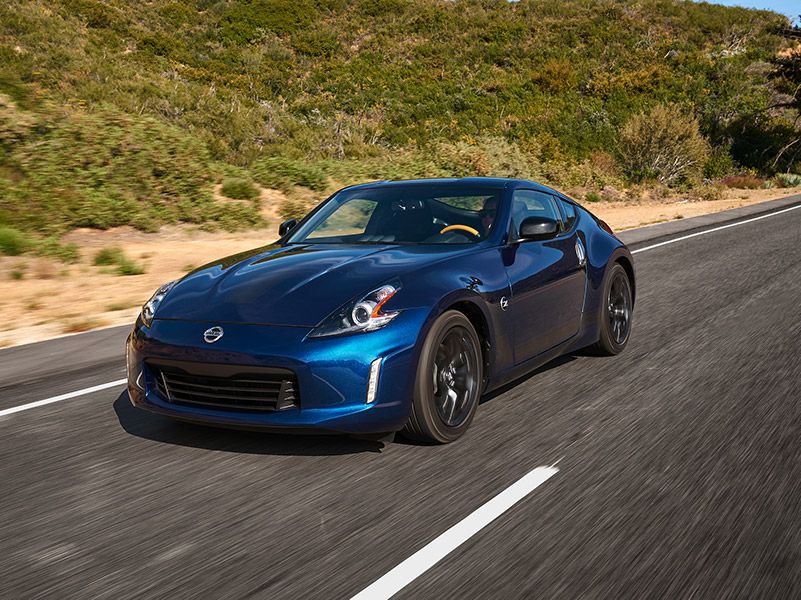
Photo by Nissan
2019 Mercedes-Benz CLA
If you’re looking for 2 Series competitors to consider from Mercedes, you’re in for a challenge. Though BMW and Mercedes-Benz usually are close competitors, the latter brand doesn’t offer a two-door coupe (or convertible) in the same segment as the 2 Series.
The 2019 Mercedes-Benz CLA “coupe” is in the same ballpark for pricing, but it’s really a four-door sedan with a curvy, coupe-like design and a larger footprint. Nonetheless, the CLA is another example of inefficient packaging. It has an extra back seat versus the 2 Series, yet with just an extra half inch of rear legroom. The Mercedes isn’t as athletic as the Bimmer, either. The entry-level CLA is 1.6 seconds slower to 60 than the comparable 2 Series.
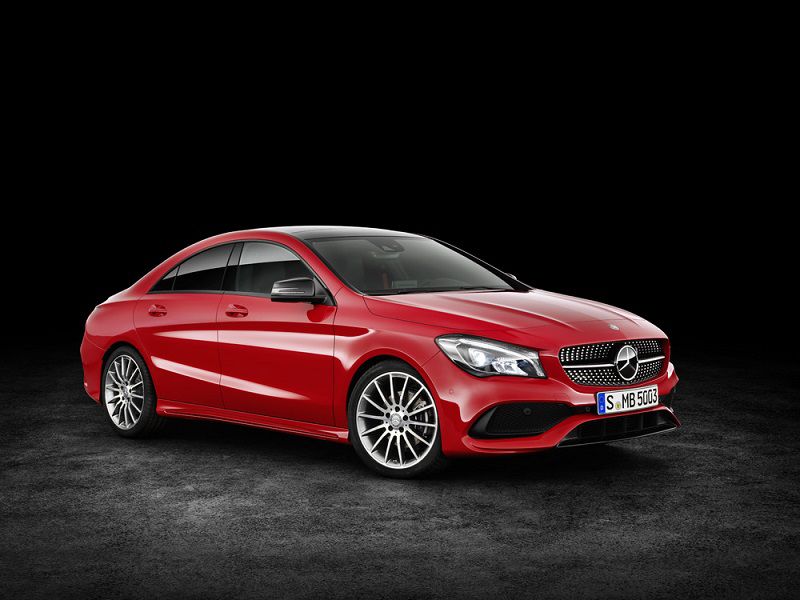
Photo by Mercedes-Benz
2019 Porsche 718 Cayman/718 Boxster
At first glance, Porsche would seem to have a pair of 2 Series competitors to consider. The 2019 Porsche 718 Cayman is a small but sporty German model with a fixed roof and rear-wheel drive, and the 718 Boxster is basically a convertible version of the same car.
That said, the Porsches take performance - and pricing - to the next level. The least expensive Cayman will set you back an additional $20,000 compared to the 2 Series base model. The priciest Porsche Cayman opens above $80,000. It’s obviously a major difference, but the Porsches also have a major difference in terms of powertrains. The Cayman and Boxster have exotic mid-engine layouts for balanced performance, and the coupe model can get to 60 mph in fewer than 4 seconds.
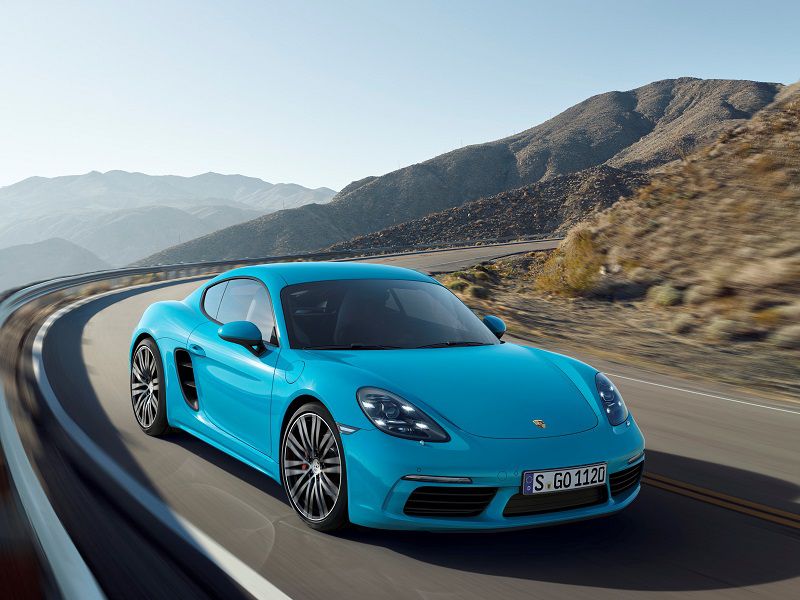
Photo by Porsche
2019 Lexus IS
From a powertrain standpoint, the closest 2 Series competitors to consider are the ones with turbocharged four-cylinder engines, like the 2019 Lexus IS. Indeed, the engines for the IS and the 2 Series have the same 2.0 liters of displacement and deliver the same 248 hp and 258 lb-ft of torque through the same kind of rear-wheel-drive powertrain. What’s different is the cars’ performance.
The IS may be the Lexus brand’s smallest car, yet it’s bigger and heavier than the 2 Series. This partly explains why the entry-model 2 Series coupe can get from 0 to 60 about 1.6 seconds quicker than the similar IS. The IS also is significantly more expensive, albeit with significantly more standard technology.
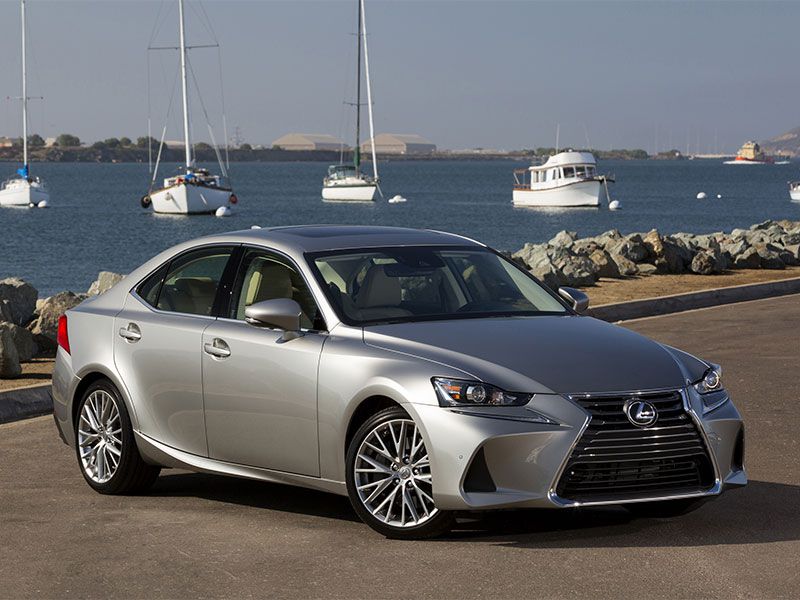
Photo by Lexus
2019 Buick Cascada
If you have your heart set on a convertible, the 2019 Buick Cascada could be one of the 2 Series competitors to consider. After all, both are small, sporty-looking drop-tops with turbocharged four-cylinder engines and a certain amount of premium flair. But from a driving enthusiast's standpoint, the Buick, with a front-wheel drive layout and a lot less power, simply can’t keep up with the Bimmer.
The Cascada’s benefits become clear when you look at your bank account. With an MSRP of $33,995, the Buick undercuts the 2 Series convertible by $7,105. Buick stores also may be primed to start making deals on the Cascada, since the brand recently announced that the car would go out of production after the 2019 model year.
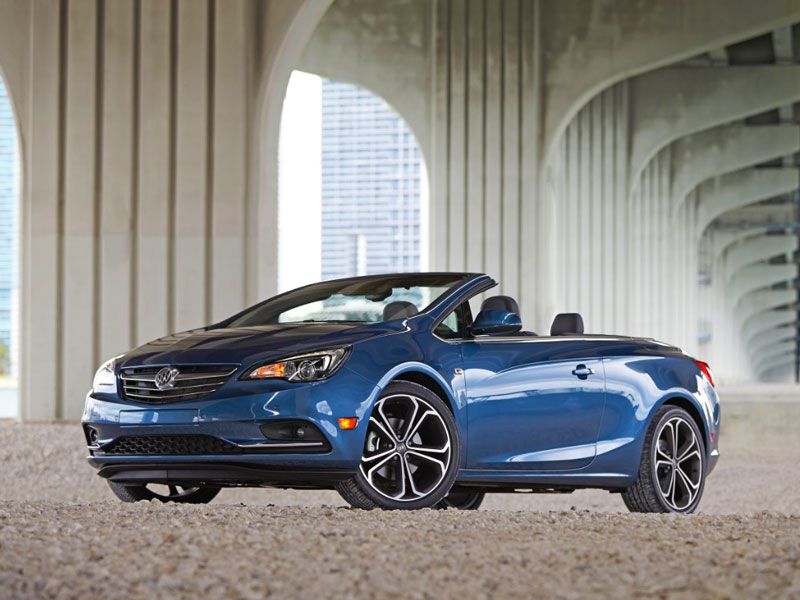
Photo by General Motors
2019 Ford Mustang
The 2019 Ford Mustang also makes the cut among the 2 Series competitors to consider. Like the BMW - and the Chevy Camaro - the Mustang includes coupe and convertible body styles, rear-wheel drive, a manual transmission, and a standard four-cylinder turbocharged engine. (The much bigger 2019 Dodge Challenger is missing both the drop-top model and the turbo powerplant.)
For the Ford, a sticker price of $26,395 includes an EcoBoost engine with 310 hp and 350 lb-ft of torque. The cost of a BMW 230i coupe is $35,300, and that’s with 60 fewer horsepower and nearly 100 fewer pound-feet of torque. And while you can’t get a Mustang with BMW’s all-wheel drive, you also can’t get a 2 Series with the Ford’s Android Auto and Apple CarPlay.
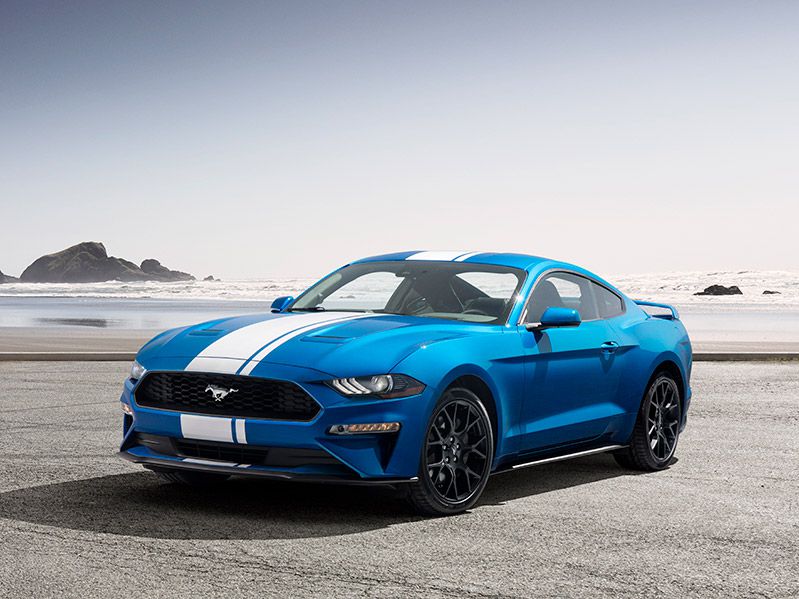
Photo by Ford